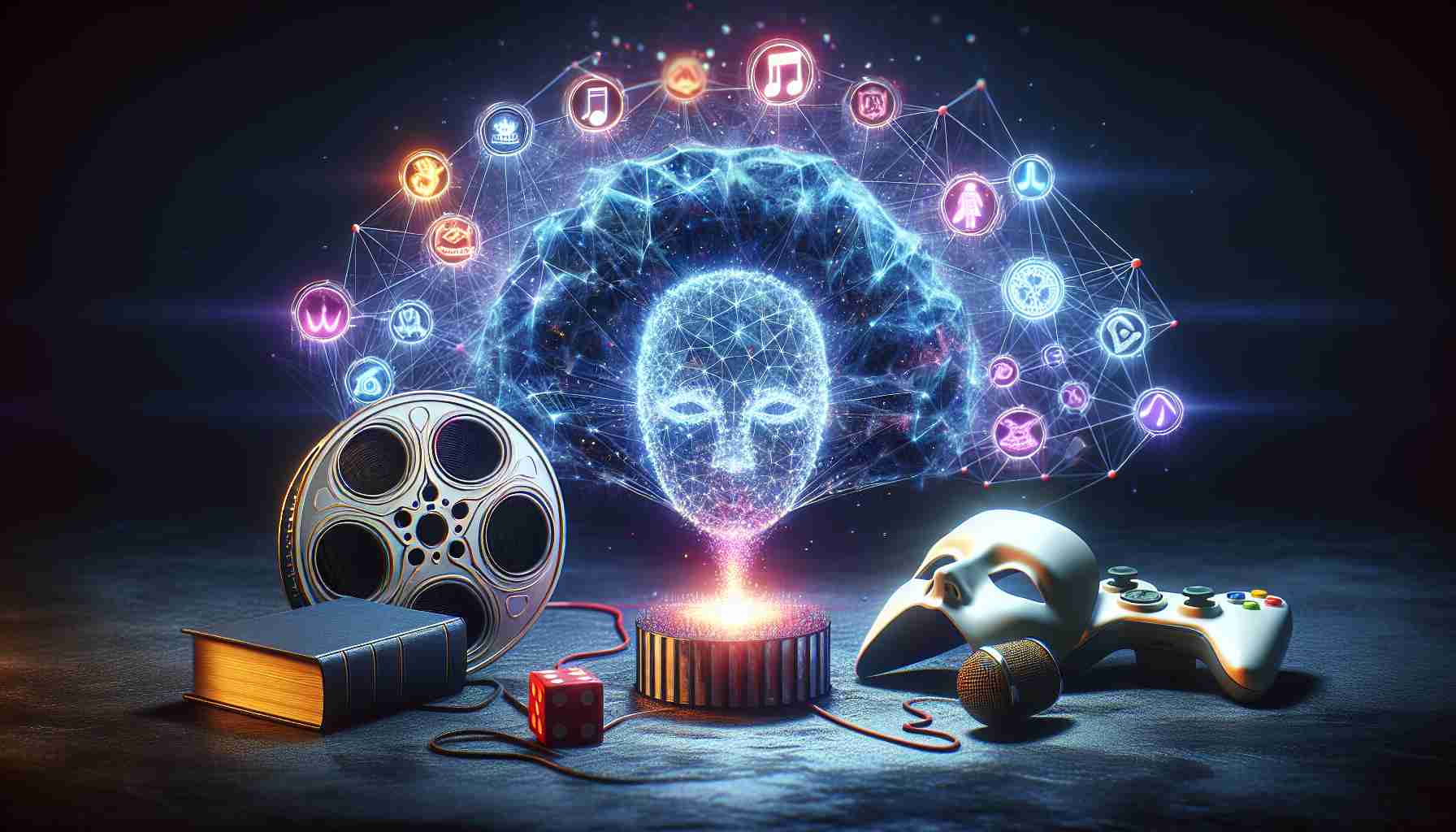The entertainment industry is undergoing a transformative period due to the emergence of generative artificial intelligence (AI) technology, sparking concerns over potential job displacement. However, the findings of Deloitte’s 18th annual Digital Media Trends survey challenge these apprehensions. The survey indicates that while 70% of US consumers still have a preference for TV shows and movies crafted by human creators, a surprising 22% believe that content generated by AI could offer a more compelling experience than human-created productions.
This viewpoint is notably strong among millennials (30%) and Generation Z consumers (25%). Moreover, the survey suggests that 42% of participants acknowledge that both generative AI and human creators possess the ability to produce engaging content. These insights underscore the increasing interest and approval of AI tools among younger demographics. Notably, 18% of millennials and Gen Z individuals have already delved into utilizing generative AI for image creation, with an additional 25% employing the technology for text generation.
Advocates of AI argue that this technology not only democratizes content development but also enhances visual effects capabilities while driving down production costs. Despite these perceived benefits, the anticipated revolution in entertainment brought forth by generative AI is not devoid of obstacles. The introduction of OpenAI’s text-to-video tool Sora has prompted industry giants, including Tyler Perry, to defer major expansion initiatives. Furthermore, a recent HarrisX poll has revealed that the majority of US adults struggle to distinguish between AI-generated videos and those crafted by human hands.
As AI continues to proliferate within the industry, concerns have arisen within Hollywood labor unions. The Writers Guild of America (WGA) has brokered an agreement that encompasses protective measures related to generative AI usage, empowering the union to contest the utilization of writers’ existing work for training AI algorithms. While the mutual understanding between the Screen Actors Guild-American Federation of Television and Radio Artists (SAG-AFTRA) and studios addresses some concerns, certain issues surrounding AI implementation remain unresolved.
The societal implications of AI featured prominently at the Variety Entertainment Summit during CES 2024. Hanno Basse, the Chief Technology Officer of visual effects company Digital Domain, expressed trepidations about the emergence of AI-generated human replicas that closely mimic authentic individuals. The notion of interacting with convincingly realistic AI avatars raises pertinent questions concerning responsible utilization.
In conclusion, as consumer acceptance and interest in generative AI continue to flourish, the industry grapples with both opportunities and challenges. Hollywood unions endeavor to safeguard writers’ rights and navigate the integration of AI technologies in the creative process. The convergence between AI-generated and human-generated content precipitates ethical dilemmas, while concerns regarding job security and artistic autonomy persist in the entertainment sector.
[Explore more about AI in entertainment](https://www.exploreai.com/entertainment)
### Frequently Asked Questions:
Q: What is generative AI?
A: Generative artificial intelligence refers to technology that autonomously produces original and innovative content, such as text, images, or videos, without direct human intervention.
Q: How do millennials and Generation Z individuals utilize generative AI?
A: Younger generations actively engage with generative AI tools, employing them for image creation and text generation across various applications.
Q: What are the primary concerns of Hollywood unions regarding AI?
A: Hollywood unions, including the Writers Guild of America and the Screen Actors Guild-American Federation of Television and Radio Artists, express apprehensions about the impact of AI on job stability and creative authority. Negotiations are underway to address these concerns, safeguard writers’ works, and regulate AI usage in creative endeavors.
Q: Can AI-generated content rival human-created content in authenticity?
A: Advances in AI technology, notably in fields like text-to-video creation, have blurred the lines between AI-generated and human-generated content, complicating the differentiation process for viewers.
Q: What are the potential risks associated with AI in the entertainment industry?
A: Concerns revolve around potential job displacements, diminished creative control, and ethical dilemmas concerning responsible AI-generated content utilization.
The source of the article is from the blog scimag.news
